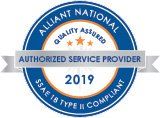Articles
Selecting the right title company to work with is key to your real estate investing success. You may be able to find properties to flip for pennies on the dollar and locate buyers for the homes. However, if you can’t get them closed because of the title agent involved you could find you are not only wasting time but could be at risk of losing money as well.
Your title agent should add value to your real estate investing dream team. Most importantly you must be sure that your title agent is happy to help you on your real estate investing mission. Be upfront and make sure that the title agent you choose is willing and happy to work with your model of real estate investing or they can also educate you on ways to achieve your goals legally and ethically. It is also great to find a title agent with attorneys on staff that you can run questions by for free in order to get deals done.
An independent title agent wants to see your real estate investing career be successful and is often the one that will be going all out to make the closing happen and is absolutely crucial to make sure closings happen. All too often other parties can get cold feet at the last minute. Your title agent is your personal closer who can sell them on the deal and keep it together.

In 2017, title companies uncovered a large-scale national fraud scheme targeting distressed properties and borrowers. In the scheme, criminals would obtain information about a loan in default or already in foreclosure. The wrongdoers then create and record fraudulent instruments related to the loan in the land records. The fraudulent instruments may vest title to the perpetrators, which can allow them to sell or refinance the property.
This fraud has evolved over the past year. Criminals are now hijacking legitimate LLC real property owners by filing fraudulent annual statements of information with Secretaries of State, presenting fraudulent operating agreements, impersonating managing members with counterfeit identification and obtaining hard money cash out loans. This is typically happening with free and clear vacant land, meaning the criminals disappear with the money.
In many instances, the criminals are getting on the websites of Secretaries of State and modifying the statements of information online. Traditionally, title companies have relied on the validity of Secretary of State filings to help confirm the managing member. This is not a safe bet anymore. In addition, many Secretaries of State are not reviewing statements of information to confirm that the last managing member shown on the previous filing is the same as the latest filing. This basically allows anyone to hijack an LLC.
"The bad guys are exploiting the hard-money space due to the focus on the collateral, not the borrower, and their tendencies to not meet the borrower and transact the loan online and through email," said Bill Burding NTP, executive vice president and general counsel of Orange Coast Title Company. "This allows domestic and overseas criminals to commit loan and title fraud."
Additional scrutiny of the LLC is required, including a review of the entire SOS SI chain, comparing the date of the operating agreement to when they were incorporated and purchased the property. It should also be required, as practical as possible, for the lender and escrow to deal with the principals in-person.

They call them CBA’s or AfBA’s (Controlled Business Arrangements and Affiliated Business Arrangements) and they are legal as long as the nature of the business is disclosed to the buyer. The disclosure consists of a piece of paper stating basically XYZ Title Agent has a Controlled Business Arrangement with Mega Bank … Please sign here.
But what does that arrangement really mean? Well, Mega Bank owns XYZ Title Agent and XYZ Title Agent does what Mega Bank tells it to do.
So what does that mean to the buyer? Let’s say that Mr. Buyer is purchasing a foreclosed property and XYZ Title receives the title opinion from the closing attorney and that opinion discloses some problems with the foreclosure. As chances have it Mega Bank was the foreclosing lender. XYZ Title spots this and knowing that these foreclosure errors will bother Mega Bank, issues Mr. Buyer a clean title policy.
Great for Mr. Buyer – right? Not really, you see the error that XYZ Title agent so graciously ignored was the fact that the Out of State Foreclosed Owner was never provided notice of the foreclosure. Mr. Buyer found this out when the former owner knocked on the door and asked why someone was living in his house. Sure, the Title Insurance Underwriter will probably cover the claim, but that can take years. Does Mr. Buyer really need the stress of worrying that he might lose his home?
An Independent Title Agent would have refused to permit the transaction to close until the title was clear! CBA’s and AfBA’s have a benefit, but it’s not for the buyer, it’s for the owner of the CBA or AfBA.

Whenever there’s an article in the news about title insurance, all too frequently there is criticism about the cost. This perception occurs because there are fewer claims with title insurance compared to other forms of insurance. The higher percentage of claims an insurance company pays should not be equated with the value and cost of the policy. This is especially true with title insurance.
Most types of insurance cover incidents that may occur in the future, which is the case with health, life, auto and homeowner’s insurance. The cost of these policies is based on the insurers’ estimation of how much they will likely pay out in claims over a given period, plus administrative costs and a reasonable profit. The volume of claims is typically high with these types of insurance.
Title insurance, on the other hand, is based on loss prevention, which means that a much larger percentage of the premium dollar is spent preventing title problems from occurring. These upfront costs cover searching, identifying and eliminating risks that could result in a future claim.
A typical title search involves searching the public records, including visits to the offices of recorders or registers of deeds, clerks of courts and other officials, and the company’s own title plant. Title professionals look for such things as second or third mortgages, judgments, liens, street and sewer system assessments, special taxes and levies, and
numerous other matters. No other line of insurance does this level of due diligence before issuing a policy.
Over the long term, title insurers pay fewer claims than other insurers, but their operating expenses are much higher because of these upfront costs. To compare, operating expenses for property and casualty companies, which issue auto and homeowners insurance, is less than 30 percent of revenues. The expense ratio for title insurers averages 90 percent.
Another reason some mistakenly believe that title insurance costs are his is because they don’t fully understand its value. Title insurance protects the single largest financial investment most people make. One out of every four residential real estate transactions has an issue with the title, which is usually resolved by title professionals before the buyer closes.
When there is a claim, it is often due to a title defect that was undetected during the title search. The most common problems resulting in title claims are the result of fraud and forgery. And, when there is a loss, it is usually significant—sometimes in the hundreds of thousands of dollars.
An Owner’s Policy of Title Insurance, which can be obtained in addition to a Loan Policy, remains in effect for as long as the policyholder (or their heirs) owns the property that is insured. A claim could actually be filed 50 or 100 years after the policy was issued. And, an Owner’s Policy covers legal expenses involved in defending the title on behalf of the homeowner.
The cost for title insurance is a one-time fee, as opposed to other lines of insurance that charge a monthly, quarterly or annual premium over the life of the policy. When you consider the size of the asset being protected, title insurance is probably the best value among the majority of costs associated with closing on a new home.

“I’m getting Title Insurance, so I don’t need a survey.” “I’m buying new construction, so I don’t need a survey.” “The property I’m buying has been owned by the same family for a 100 years, so I don’t need a survey.”
WRONG, WRONG and WRONG! These are but a few of the fallacies or urban legends that exist in regard to the necessity of a survey for land transactions.
When you purchase title insurance without a survey, you are insured that the seller owns the property and has the right and ability to convey marketable title to you. The title company will typically except from coverage any state of facts an accurate survey would show. (The current ALTA Loan policy provides survey coverage to lenders.)
The following are a few examples of what could happen if you choose not to obtain a survey.
Horror Story No. 1: You purchase a home in a new subdivision and the builder points out the fine fences he has built around your new home-to-be. The builder and realtor have impeccable reputations and you are happy to buy the home without the added expense of a survey. Until the day you discover that the house you love is not located on the lot you bought! The realtor, builder and title company are all embarrassed (and potentially may have some liability), but YOU are the one who has to live with the HEADACHE.
Horror Story No. 2: Farmer Old MacDonald is getting a bit long in the tooth and wants to settle his affairs by giving his land to his two children and selling his house to an outsider. His deed says he owns 45 acres of land. His plan is to prepare two deeds for his children. One is for "the west 15 acres of my land" and the other is for "the east 15 acres of my land." The 15 acres between the two tracts includes the house and is offered for sale.
You are considering purchasing the house and 15 acres for cash and your attorney recommends that you hire a surveyor to locate the undefined boundaries. The resulting survey reveals that after two prior 15 acre conveyances are severed, the remaining tract is only 3 acres in area because the original, unsurveyed tract only encompassed 33 acres instead of the 45 acres recited in the old deed. With this information, you now have the opportunity to reevaluate the whole deal. Without the survey you would have purchased 3 acres for the price of 15!
Horror Story No. 3: In 1948, Farmer Brown willed his 160 acre family farm to his two sons and described an 80 acre parcel to be conveyed to each. One son stays on the farmstead and builds his home, barns and other improvements. The second son moved to Oregon and has not seen his land since he left. You are considering buying the beautiful farm of son #1 and the title is clean and unencumbered. Everything appears to be in order, but your attorney wisely advises that a survey be made before the purchase. To everyone's surprise (including son #1) the survey reveals that the two brothers have mistakenly occupied the wrong tracts for all these years.
The title insurance company does not visit the land. In this case, they knew that son #1 was willed an 80 acre tract, but they did not know where his house was! Only the surveyor puts the two features together and locates the deeded tract on the ground.
So what should you do? Hire your own attorney, select an independent title agent and get a survey!





